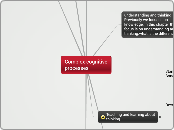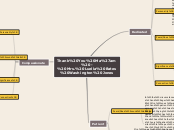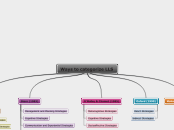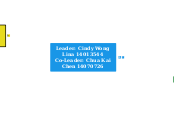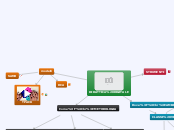Complex cognitive processes
Becoming an expert student learning strategies
even if we are Successful in teaching reading and Problem solving, can we be sure that our Students will be able to evaluate and analyse what they read. will they go beyond informatapply knowledge, make judgements and generate new ideas
Reads
Summarise
Do it (read)
Ask
Examine bold words
Review headings
Visual tools
webs, diagrams
Taking notes
Understand when focus on important ideas and map lecture
Underlining and highlighting
connect with known
transform into own words
be selective
Principles
provide direct instruction regarding metacognitive strategies
motivation
Teach how to use strategies
Exposed to diff strategies
To learn students must be
Regulate own learning
Think and process deeply
Invest effort
Cognitively engaged
Guidelines
let students do thinking
teach heuristics (steps)
consider alternatives
See problem different angles
Help students represent the problem
Expert teachers
well organised knowledge
Analyze problem better
routines automatic
Factors that hinder
Flexibility - ask what do I need to know
Response set - Rigidity - what has worked before may not work.
Functional fixedness inability to use tools in a new way
General problem solving strategy
Look back and learn
Anticipate outcomes and act
After implementation check for evidence to confirm or contradict solution eg how will consumers react after you develop tougher tomato.
Explore possible strategies
If you did not find schema Search for a solution
Heuristic - general strategy
working backward strategy eg when submitting an assignment
means end analysis breaking the problem into steps eg term paper.
Algorithm step by step procedure
Define goals and represent the problem eg tomato harvester is damaging tomatoes.Is your goal to fix machine or make tougher tomato.
Using the right Schema eg is it a distance problem?
understanding the whole problem
understanding the words
Focusing attention
Identify problems and opportunities (elevator problem,slow elevators vs bored people)
General problem solving strategies vs specific:there is a debate about whether problem solving is general or specific.
People move between two depending on their level of expertise and the situation.
depending on expertise and situation
Gagne:educational programs have the important ultimate purpose of teaching students to solve problems
educational programs have the important ultimate purpose of teaching students to solve problems
Extending and connecting concepts
Concept mapping
Explaining
Writing
Reading
All lessons must include
Definition
eg concept of light
Makes concept clear
Relates to known
Name of concept
non examples
Examples
How do you teach a concept?
what is worth learning?
High rd vs low rd
Teaching and learning about thinking
mindfulness
take intellectual risks
Open Creative probabilistic state of mind
Critical thinking
Language of thinking
why? identify?
Developing thinking in every class
create culture of thinking in classroom
Stand alone programs eg de Bono's thinking hats.
students do not need subject knowledge to learn skills such as Comparing, ordering classifying
understanding and thinking
Previously we focused on knowledge, in this chapter the focus is on understanding and thinking.what is the difference?
Previously we looked at knowledge construction now we look at understanding and thinking. We look at what is Known about thinking
Important areas related to understanding and thinking according to cognitive theorists.
Transfer
Thinking
learning strategies
Problem solving
concept learning
